Americans don't deny that crimes were committed in the name of Christ during the Crusades, but many find the comparison with ISIS inappropriate
Americans agree – at least in part – with some of President Obama’s remarks at the National Prayer Breakfast last week about violence in the name of Christianity, but only when it comes to his description of events that date back centuries.
But many in the latest Economist/YouGov Poll simply don’t associate the President with religion at all. Two in three Americans say religion is important in their own lives – but only about half think it is important for the President. And most Republicans say religion is not important for the President.
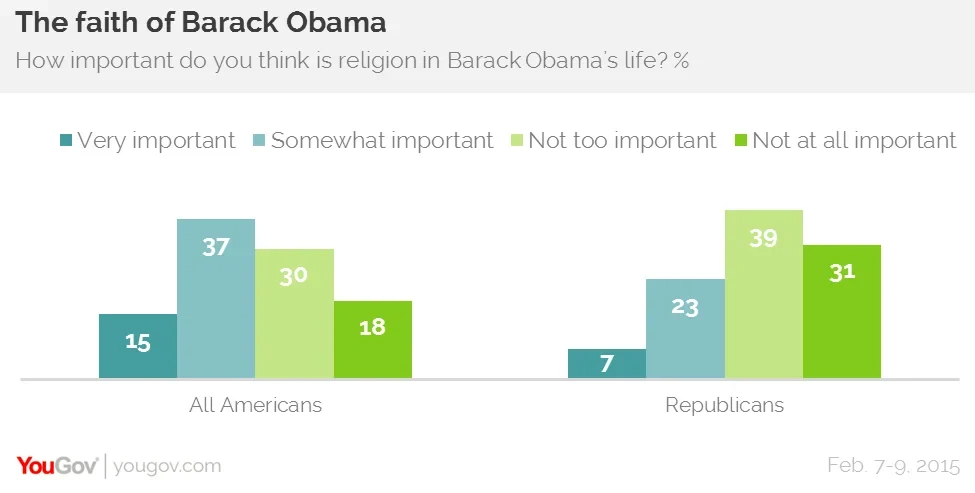
Overall, Americans are closely divided on whether religion plays an important role in the President’s life – about half say it is somewhat or very important to him, but about as many say it’s not.
Asked whether they would use the word “religious” to describe the President, only one in ten say they would. Twice as many definitely would not. The rest give no answer either way.
The President’s Prayer Breakfast statements about how religions – including Christianity -- have been used to justify horrible actions were criticized by many religious activists – and by many Republicans – as being offensive to Christianity, and as an attempt to equate the sins of the past with Islamic radicalism today. But the public does agree with at least one of the President’s specific statements. Most Americans – Republicans and Democrats alike, both the most religious and least religious – agree with the President that “during the Crusades and the Inquisition, people committed terrible deeds in the name of Christ.”
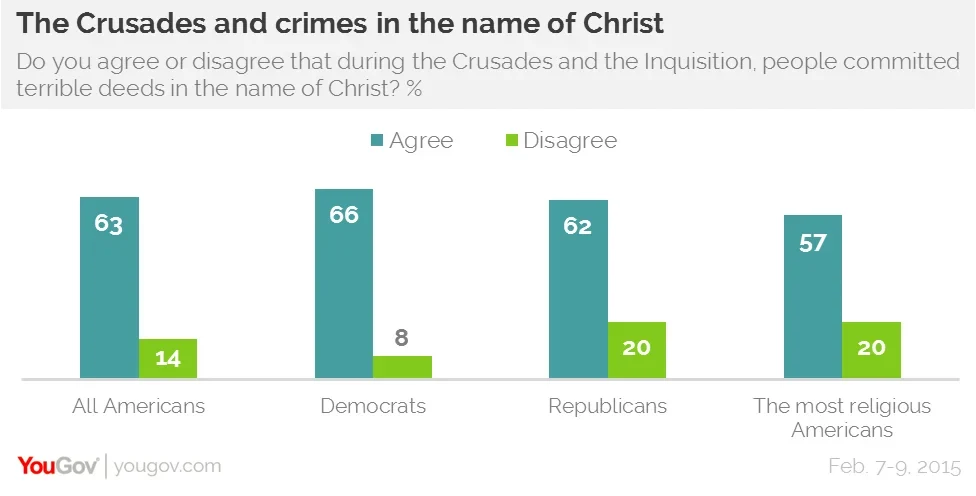
That’s not the case when it comes to the more recent evils of slavery and Jim Crow. Asked whether “Slavery and Jim Crow [were] all too often justified in the name of Christ,” Americans disagree, though many aren’t sure. Democrats agree, but Republicans and the most religious definitely do not. And African-Americans, whose ancestors suffered from slavery and many of whom had personal experience with Jim Crow laws, are evenly divided.
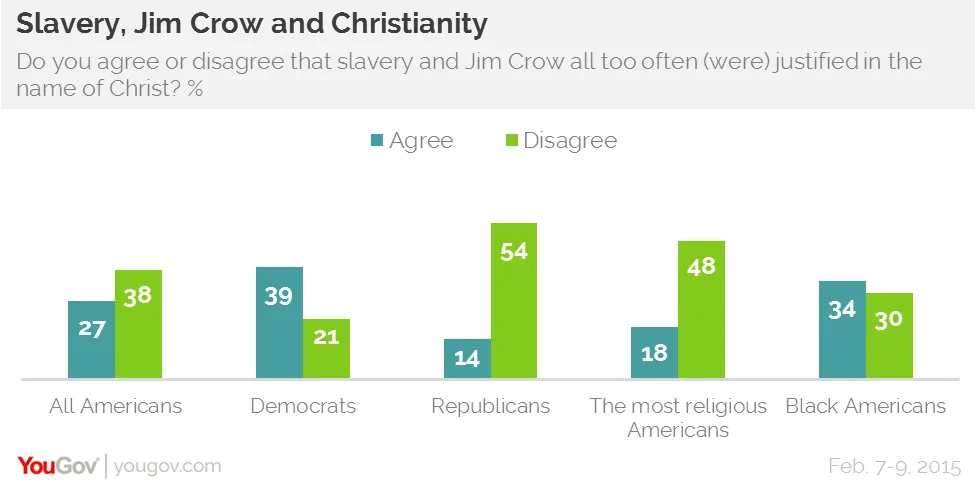
Criticisms of these statements were not just about their truth, but about whether they were insulting to Christianity – and many Americans agree they are. That is particularly true for the statement about slavery: by 44% to 26%, the public regards that statement as insulting. Americans are somewhat less sure whether the statement about the Crusades and Inquisition insults Christianity. 36% say it does, 42% say it does not.
But Americans don’t want the President reaching back to examples of Christianity’s failures to explain how religion can be misused – and certainly not when modern day examples of violence are justified by reference to Islam. Half the public finds that comparison inappropriate. Democrats are closely divided, but Republicans and those who describe themselves as most religious overwhelmingly find the comments and comparisons inappropriate.
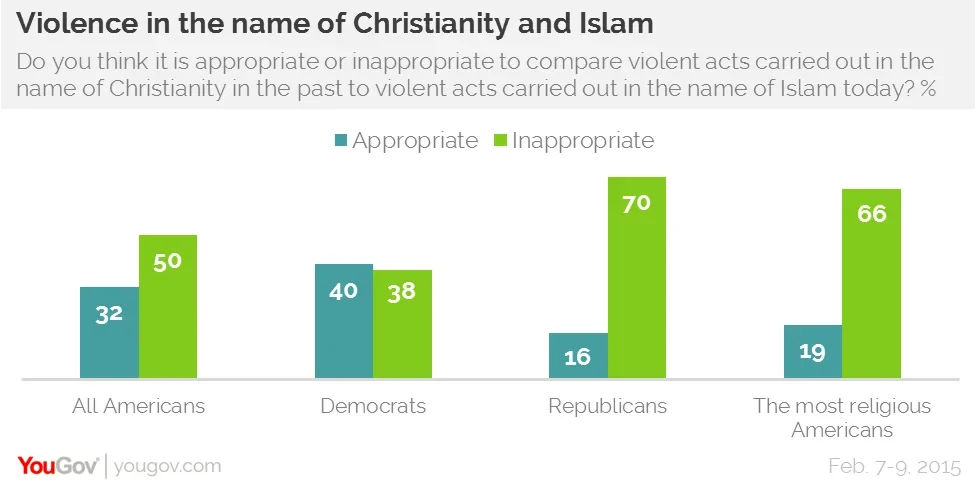
Republicans have an especially negative view of Islam as a religion. Americans are closely divided on whether they believe the Islamic religion is more likely than others to encourage violence, a belief the Pew Research Center has seen double since 2002. Then, only 25% of Americans in the Pew poll agreed; 50% did in the Pew Poll conducted last September.
The belief that Islam is more violent than other religions is most often held in the Economist/YouGov Poll by Republicans and by those who are most religious. Americans under 30 overwhelmingly disagree.
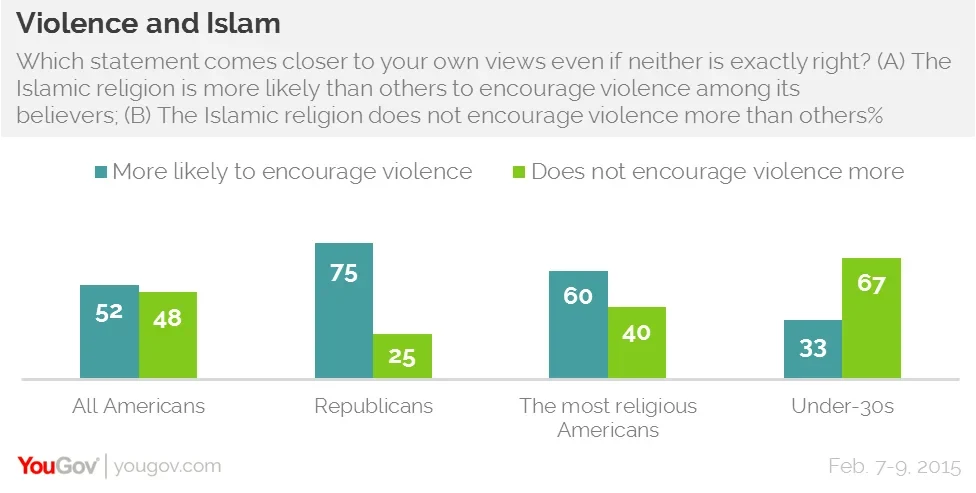
But while Americans may be divided, Republicans see danger from Muslims throughout the world. By nearly two to one, they see global Muslims as more sympathetic to terrorists than to the United States; Democrats take the other position.
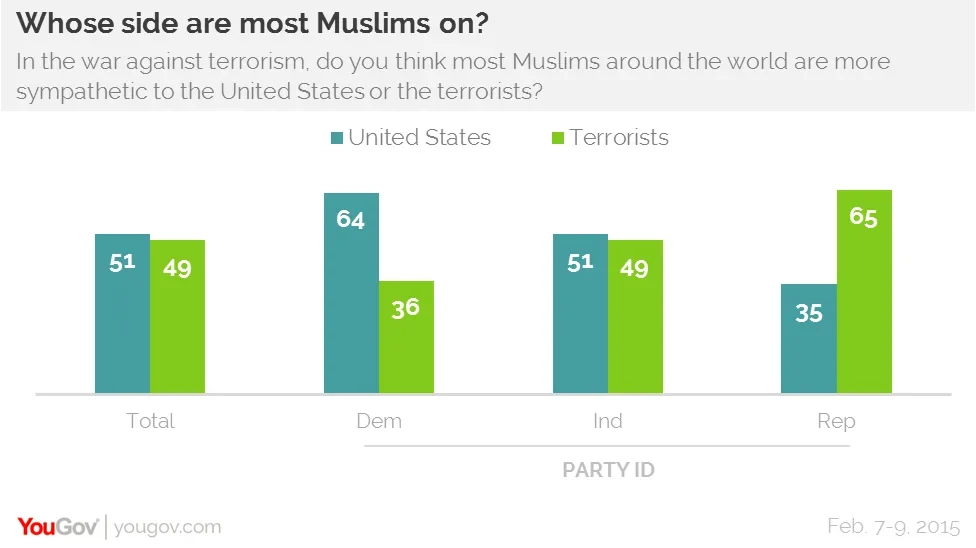
Many Republicans also have doubts about Muslims in the United States. 40% of Republicans believe most Muslims in the United States are patriotic Americans, but 32% do not. 62% of Republicans believe most Muslim Americans are less patriotic than other Americans. That is a very different position from the public overall: by more than two to one, Americans believe Muslims in the United States are patriotic Americans, and that most Muslims are at least as patriotic as other Americans (though overall, 43% say they are not).
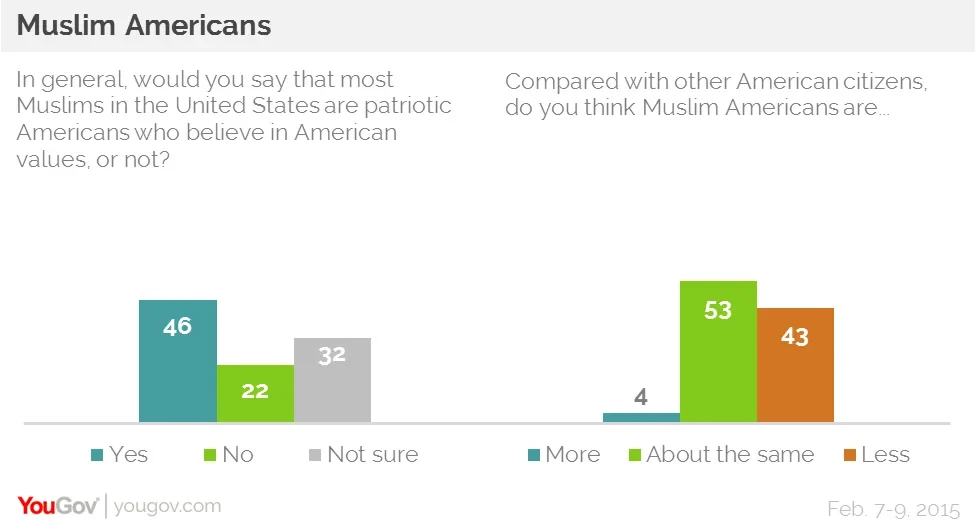
Economist/YouGov poll archives can be found here.







